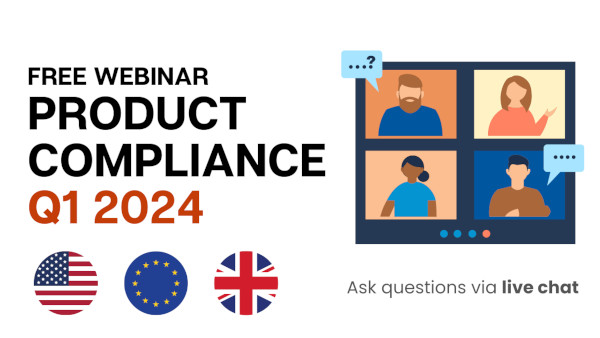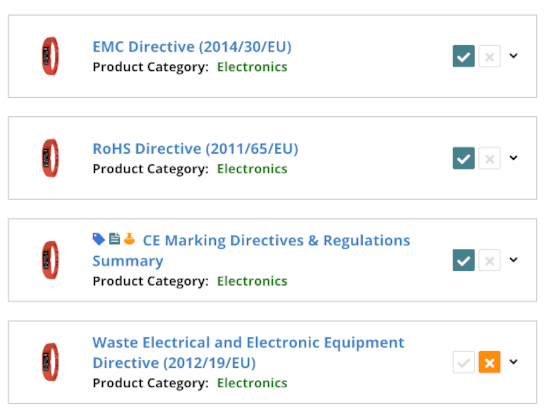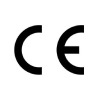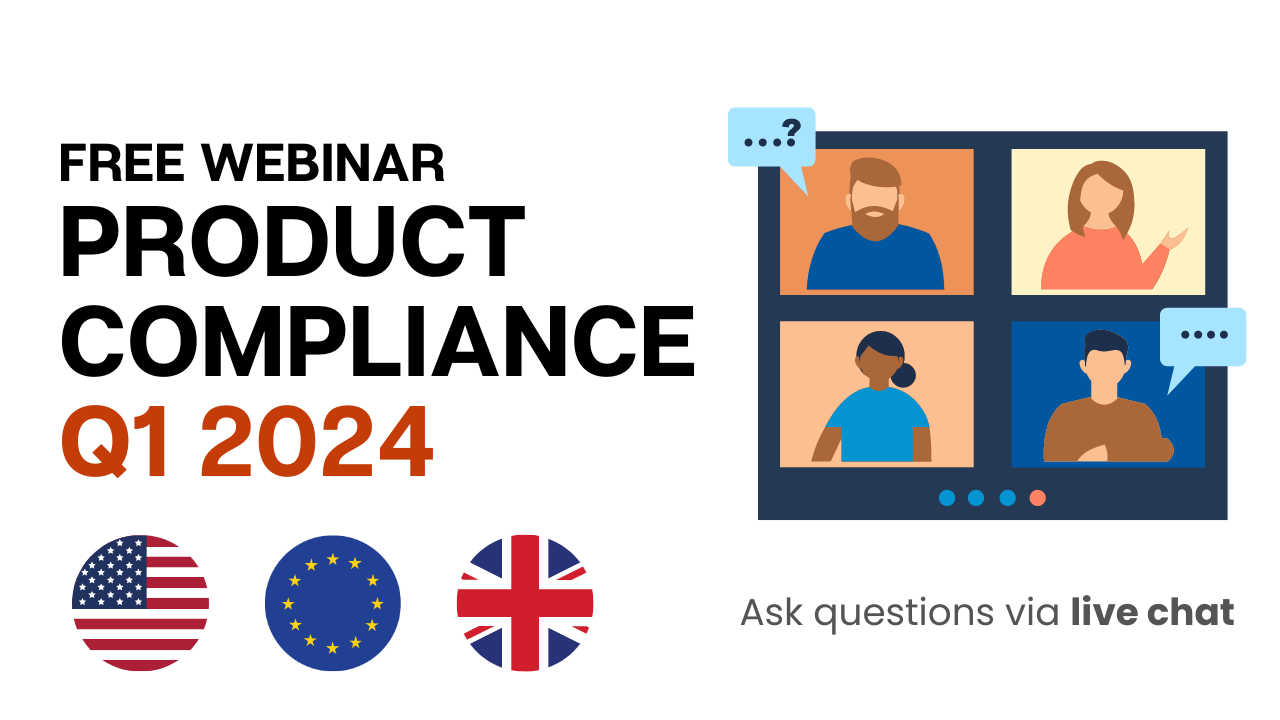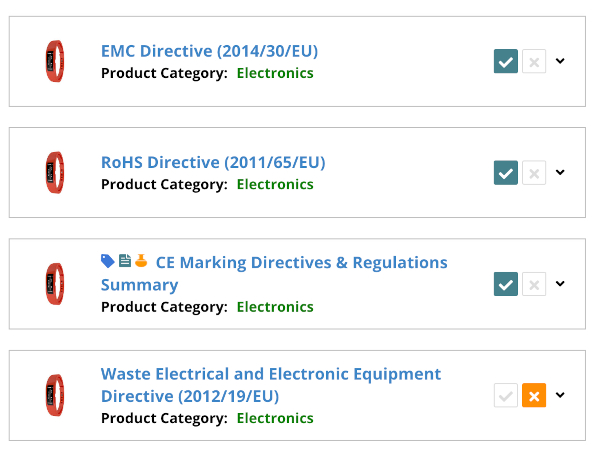
Imagine a future in which businesses must submit test reports and product certificate data as part of the importing process. Thanks to the US Consumer Product Safety Commission, that future is coming closer.
The CPSC is currently planning its second pilot test of a product certificate eFiling system. This is part of their roadmap to implement a permanent eFiling system in the United States.
In practice, this will require US importers to submit data on the regulations, standards, and rules to which the product conforms. Further, information about the lab testing company must also be submitted.
Content Overview

FREE CONSULTATION CALL (US, EU & UK)
- Request a free 30-minute call with Ivan Malloci to learn how we can help you with:
- Find product requirements
- Certification and labeling
- Lab testing
Electronic Filing of Certain Certificate of Compliance Data Beta Pilot
The U.S. Consumer Product Safety Commission and the U.S. Customs and Border Protection (CBP) will conduct a beta pilot program for electronic filing of certificate data. This is the second time they do so, and only includes 50 applicants.
Further, this is the second such pilot program. The former test was their alpha pilot.
What is the purpose of Electronic Filing of Certificate of Compliance Data?
The CPSC is planning for a permanent eFiling requirement for regulated consumer products. Doing so requires that they develop IT systems and internal procedures that can handle a future in which every company importing goods into the US must submit electronic product compliance data.
A permanent eFiling system also requires data sharing and collaboration between the CPSC and CGP, among other government agencies.
In short, the beta pilot leads up to a future in which compliance documents and data must be submitted as part of the importing procedure.
Who can participate?
The CPSC mentions that only importers of consumer products can participate in the beta pilot.
Which products are covered?
The beta pilot includes up to 300 different products, based on Harmonized Tariff Schedule (HTS) code. Here are some examples of products mentioned by the CPSC:
- Toys
- Rugs
- Baby carriages
- Cribs
- Children’s furniture
- School suplies
- Bicycle helmets
- Clothing
- Mattresses
These products are all covered by CPSIA or other existing CPSC regulations and standards. Hence, it’s likely that the eFiling system will replace the current Children’s Product Certificate (CPC) and General Certificate of Conformity (GCC) at some point in the future.
What kind of data must be submitted?
Importers participating in the beta pilot will be required to provide the following information:
1. Identification of the finished product (may use reference to GTIN* data for this element);
2. Each consumer product safety rule to which the finished product has been certified;
3. Date when the finished product was manufactured;
4. Place where the finished product was manufactured, produced, or assembled, including the identity and address of the manufacturing party;
5. Date when the finished product was most recently tested for compliance with the consumer product safety rule cited above;
6. Parties on whose testing a certificate depends (meaning the name and contact information for the entity that conducted the testing); and
7. A check box indicating that a required certificate currently exists for the finished product, as required by Sections 14 and 17 of the CPSA.
*Global Trade Item Number (GTIN)
Note that the information listed above is already mandatory to provide today for the covered products. The difference is that importers must currently provide said information in the form of a Children’s Product Certificate (CPC) or General Certificate of Conformity (GCC).
Further, importers must also submit information about the lab testing company.
Will electronic certificate filing become mandatory in the future?
Yes, the stated goal is to implement a permanent eFiling system.
How will importers be impacted by product certificate eFiling in the future?
Currently, submitting product compliance information is not mandatory when importing goods into the United States. Instead, businesses importing or manufacturing products covered by certain CPSC standards or regulations must self-issue the following documents:
These are essentially declarations stating that a certain product is compliant with one or more ASTM standards or consumer product safety rules. These documents also include information about the third-party testing company.
However, enforcement today is largely based on document checks and recalls, rather than a mandatory submission process at the point of entry. As a result, unsafe and non-compliant products can be imported and sold in the US with relative ease.
An eFiling system linked to the CPSC and CBP would likely make it mandatory for importers to submit certificate data as part of the importing process. In short, failing to provide the required certificate data would result in failed customs clearance.
This also makes it riskier to skip mandatory third-party lab testing, as information about the testing company must also be submitted
This is a gamechanger, as it could potentially make it far more difficult to import unsafe and non-compliant products. At the same time, it would also make importers more aware of these requirements than they are today.
How can a certificate eFiling system protect consumers?
As mentioned, products can be imported to the United States (and other countries for that matter) without mandatory product certificate checks. Instead, only a certain percentage of inbound shipments are subject to some form of certificate check.
The CPSC and other government agencies also rely on self-reporting from importers, and consumer reports. Unfortunately, this means that action can, at least in some cases, only be taken after someone has been injured (or worse).
An eFiling system would make it mandatory to submit product certificate information in order to import the products. Importers could still submit false data, but even this problem can likely be mitigated in the future when the eFiling system can be linked up with the databases of CPSC-accepted labs.
Future product certificate eFiling systems
Future product compliance eFiling systems may go beyond consumer products within the CPSC’s scope. In a few years, it wouldn’t surprise me if US imposters must submit certificate data when importing electronics, medical devices, food contact materials, and many other product types.
I also believe it’s only a matter of time before we’ll see something similar in the European Union.



